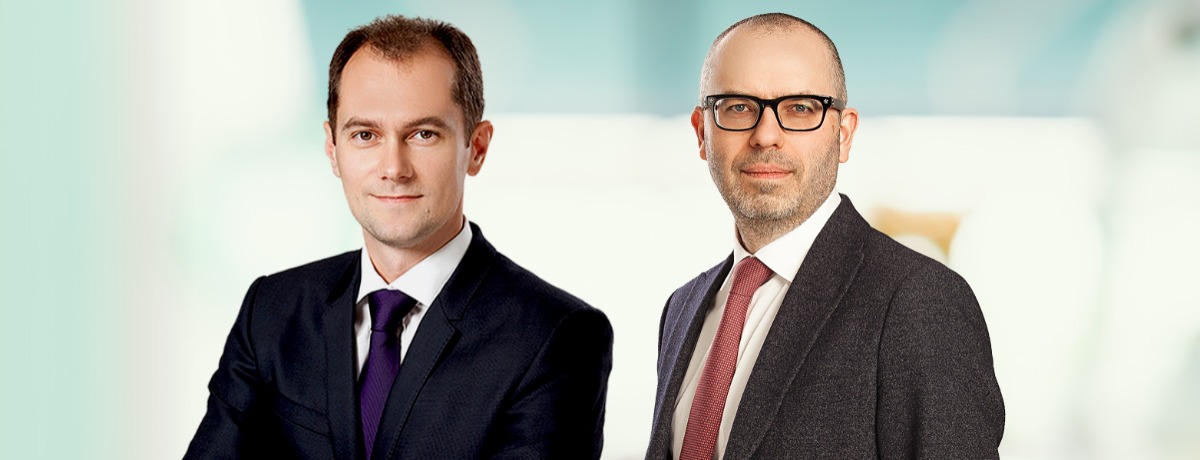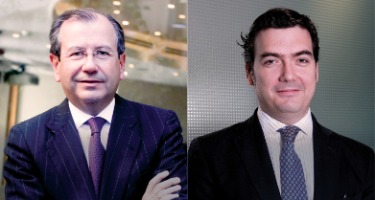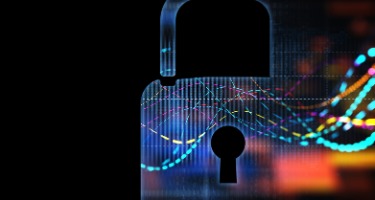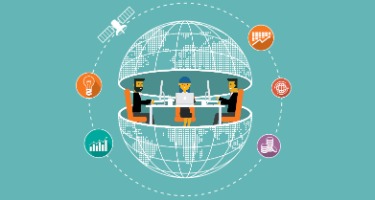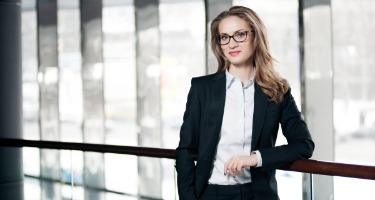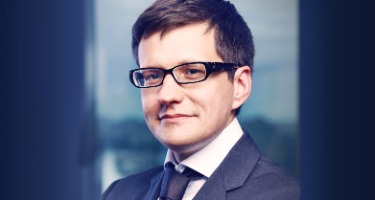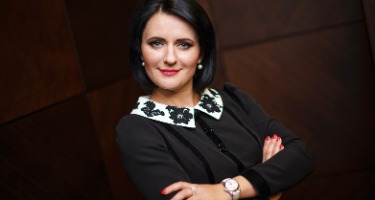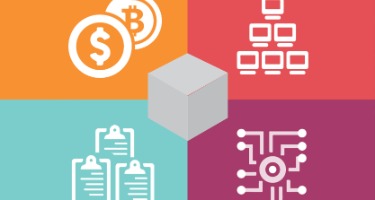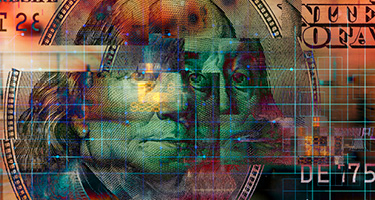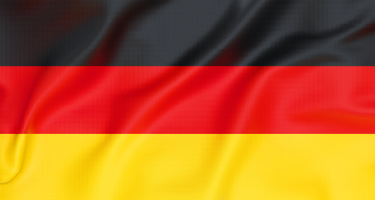For Nazar Chernyavsky and Michael Kharenko of Sayenko Kharenko—Ukraine's 2020 “Law Firm of the Year” winner in Capital Markets Law—steps forward in technology have provided their firm with new avenues to advise their clients. Both Chernyavsky and Kharenko join Phillip Greer, CEO of Best Lawyers, to discuss the advancements in cryptocurrencies, blockchain, and the legal challenges that remain for new technologies.
Automation is becoming increasingly common across all industries and in 2017, you wrote an article on the topic titled "Will Robots Replace Lawyers?". What have you seen change in the two years since you wrote this? Have you seen some firms utilize A.I. to automate functions once handled by junior lawyers?
The technology has been developing at a very fast pace since then, but still we cannot claim that machines will replace lawyers. Indeed, some of the routine tasks have been automated and those technologies become more advanced every day. At the same time, when speaking about more sophisticated tasks, especially those which require “soft skills,” we do not see any matching technologies. Some law firms have been testing A.I. technologies, but from what I’ve heard from some of them such software still does not pay for itself—it takes too much effort to train it which is equivalent to doing the work by yourself for medium-sized firms. Only the firms which possess huge volumes of data and have extra capacity to feed that data in the machine can benefit from it (provided they have the respective deal flow). Thus, it would make a perfect sense for Magic Circle firms to use A.I.-based technologies (e.g. machine learning) and make redundant some of the junior positions. Nevertheless, none of the existing technologies constitute a real A.I. to replace senior legal staff with their negotiation or management skills and the cost of those technologies is still too high for adoption by smaller firms or smaller markets.
Blockchain technology has also emerged in the market over the past few years. Do you see cryptocurrencies as an area of increased legal challenges? Have you seen conflicts arise when it comes to government regulation and policy?
The latest examples of confrontation of the U.S. Government with Libra and emergency SEC order in relation to Telegram TON prove that there is still a lot of potential in this area, and a legal standpoint would play the centerpiece role in it. It is very likely that the regulators globally would have to find a niche for cryptocurrencies as they cannot just ignore or ban it completely. From our perspective, apart from the growth of cryptocurrencies which is a very controversial and hot topic, we see a big potential in the use of the blockchain infrastructure (protocols) in various fields, especially in the legal industry—all sorts of public registers, accounting systems, smart contracts, etc. And this can also influence the legal profession, as some of the technical functions may become obsolete.
Ukraine recently liberalized its free exchange of currency transactions. Cryptocurrencies can be used for multiple purposes such as settlement of goods and services, contractual agreements, record keeping. Does this new law ease or burden foreign exchange through cryptocurrency and do you see any differences once parties use them as a means of exchange compared to the traditional methods?
I would say that all those functions can be performed through the use of blockchain technology and cryptocurrency may not be relevant at all in some cases. Moreover, when it comes to the use of cryptocurrencies, including any forex transactions with those, the regulators are not that forthcoming. In the case of Ukraine, it is still problematic to exchange any currency for cryptocurrency. Accordingly, it is much easier to buy foreign currency directly than use crypto for that purpose. If an individual actually wants to buy a cryptocurrency, as a matter of practice, (s)he would use one of the foreign crypto exchanges and transfer money there as payment for services. Legal entities in Ukraine cannot formally buy any cryptocurrencies as their status is not regulated and servicing banks would not arrange such a payment.
What other legal hurdles are popping up because of A.I., cybersecurity, and blockchain regulation in Ukraine and internationally?
I have to admit that technology is one of the most dynamic sectors in Ukraine and is trying hard to keep its legislation up to date. At the same time, in many instances, the industry does not need regulation and on the contrary, needs a certain degree of freedom and room to develop. The most important thing which probably requires regulation is cybersecurity. Most of the companies are quite reluctant to implement any security measures unless they are forced to do that, while the resilience of the whole industry (or even country) often depends on the resilience level of the least prepared unit. We have seen an example of GDPR, when companies started taking due care of the protection of personal data when they were threatened with huge fines. We expect a similar trend with information and network security generally. The governments shall take a leading role in the process.
Other aspects where government intervention may be necessary is the ethical side of technology–ethical principles for the use of A.I. (not to harm humans), regulation of experiments with human and animals’ DNA, funding of any illegal activities, etc. Accordingly, we may need the involvement of other professionals apart from lawyers to draft such regulations. The basic principle here should be that one cannot stop the technological advance but should ensure that it does not bring harm to people.
Technology continues to evolve at a rapid pace—sometimes faster than legislators can react which can create legal uncertainties. How are you providing practical advice rather than theoretical insight as things change?
It has always been our approach to provide practical advice and living in Ukraine even helped it. In many cases, when our clients engaged us to help them with some new structures or support them on some pioneer projects, the respective legislation simply did not exist in Ukraine. However, we would not say that something cannot be done because it is not contemplated by the law—we try to understand the ultimate purpose of the client, see how it works in other countries and then try to implement it in Ukraine by using the existing regulatory framework or shaping the new one. As a result, we have developed one of the top GR practices in the country as we have been involved in the drafting of many new laws in Ukraine. On top of it, we have launched an internal R&D unit (Neworld Lab) which has been following any latest trends in technology to see how it may impact the business and eventually the legal framework. At some point, we were even called “law shapers” as we always enjoyed working on something new and making it real.
Are there any other major initiatives or projects your practice is working on you’d like to share?
We are currently working on the automation of some routine processes in our work, which take a lot of time from our lawyers or support staff (agreement and opinion templates, translations, etc.). Apart from that, we intend to switch to e-contracts with all our suppliers and counterparties, which is a big deal in Ukraine where companies still generate a lot of papers and require executed hard copies when dealing with each other. It will become another important milestone in our Green Office initiative where we try to engage all our employees to come up with all sorts of ideas to reduce our carbon impact.
Find trusted legal counsel with the Best Lawyers Find a Lawyer tool and get the support you need.
